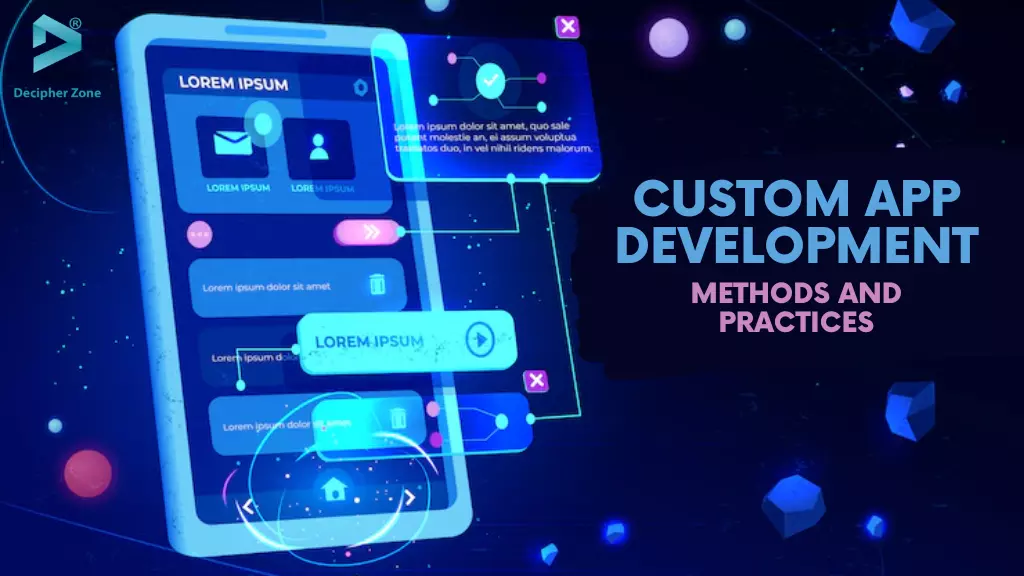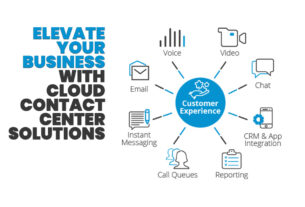Nowadays, mobile apps have become the most efficient and convenient technology. They assist us with a variety of tasks, including gaming and shopping. However, not all software is the same. Some are customized or built with a particular goal in mind. These unique apps are referred to as “custom apps.”
These are applications that are customized. They are created from scratch or significantly modified to satisfy specific requirements. They differ from the ready-made ones that are available in app stores.
In 2024, plenty of innovative technologies will have been developing custom apps even more impressive. AI and machine learning enable apps to learn and perform intelligent tasks. 5G speeds up app performance and increases speed. Additionally, AR and VR enhance the user experience and involvement of apps. The goal of well-designed custom apps is to make them simple to use. They function well and have a nice look. As a result, users today prefer mobile apps with more excellent features and customization options.
Although businesses can choose to use ready-made apps, if they are unable to provide the desired user experience or features that users explicitly want with these apps, at that point, firms must modify their demand for custom mobile app development services to satisfy user needs and market demands.
Here are the most recent things you should know before building a custom app in 2024 if you want to create one specifically tailored to your company’s demands. Additionally, you will receive an overview of custom app development, which can help you grow your business in this cutthroat environment.
What is Custom Application Development?
Custom application development is the procedure of building the software that is specially adapted to meet the requirements of a business or organization. Custom apps are usually developed from scratch or drastically altered to meet the specific processes, procedures, and objectives of the business, as opposed to ready-made software solutions. However, with this strategy, organizations can efficiently handle their unique difficulties and establish a competitive advantage by having complete authority over their applications’ features, functionality, and user experience.
In the highly competitive and rapidly evolving business environment, enterprises frequently need software solutions beyond what pre-packaged apps offer. This can be solved through custom application development, which gives businesses the specific functionality, scalability, and flexibility they want. Custom apps can be created to precisely match the needs of a company, allowing increased productivity, outstanding client experiences, and automation of internal operations, customer contacts, and innovative product development.
What are the types of Custom Application Development?
Custom apps come in various types, all intended to meet specific requirements and features. These are a few common categories:
- Project Management Tools
- E-commerce Platforms
- Data Analytics and Business Intelligence (BI) Tools
- Enterprise Resource Planning (ERP) Systems
- Customer Relationship Management (CRM) Software
- Workflow Automation Tools
- Content Management Systems (CMS)
Project Management Tools
With this tool, app development teams can plan, coordinate, and monitor tasks using custom project management apps, boosting effective teamwork and on-time project completion.
E-Commerce Platforms
Customized e-commerce apps give organizations a particular online sales platform that will smooth online transactions, manage products, and help to interconnect with customers.
Business Intelligence (BI) and Data Analytics Tools
Applications for custom analytics manage and identify the data to give organizations significant and practical insights that will support decision-making for their projects.
Enterprise Resource Planning (ERP) Systems
These applications will handle capital, inventory control, supply chain management, and HR management—the four most crucial organizational tasks. Additionally, they will offer a solitary workspace for significant and effective activities.
Customer Relationship Management (CRM) Software
With the help of the strategic management for sales, marketing, and customer service interactions of the current and potential customers, will enable CRM software firms to build longer-lasting and more robust connections.
Workflow Automation Tools
Applications for custom workflow automation reduce the need for human intervention in the project by eliminating repetitive tasks and procedures, which will help you increase the productivity of your business project.
Content Management Systems (CMS)
In this system, digital content can be developed, updated, and managed with the help of CMS programs in application development. They are utilized in website development, making it easy for users to edit and organize content properly.
Advantages of Custom Application Development
Businesses that use custom application development could gain numerous benefits. The following are a few advantages and benefits of developing custom applications:
- Cost-effective
- Effectiveness
- Scalability
- Customization ease
- Integrations
- Minimal risk to security
- Usability
Cost-effective
Developing an application traditionally is not economical. The IT teams are frequently tasked with developing, testing, and debugging applications after receiving the specifications. And there may be a high price for such. On the other hand, choosing a guide for custom mobile app development can simplify application development processes and significantly reduce resource requirements.
Effectiveness
Custom apps are designed to optimize particular workflows and assist procedures within an organization, which is one of their primary selling points. They are better suited to tackle business challenges as they are usually developed by keeping the users in mind or by the users themselves.
Scalability
A solution specifically designed for you can expand along with your company. Developing an application corresponding to a particular task and workflow enables developers to take a step back and adjust specific steps to manage more extensive data and request volumes.
This implies that to scale and access additional capabilities, you won’t need to migrate to a new solution.
Customization ease
One of the most essential advantages of custom application development services is customization. Applications developed traditionally frequently need outside assistance to set up and customize. These could be external developers, authorized product experts, or members of the IT teams. Custom applications greatly simplify customization as business users control and configure their apps.
Integrations
Every company already uses tools and systems to manage operations. Compatibility with these platforms is one of the most important factors to consider while creating custom apps.
These days, many application development platforms have API integration features that simplify integrating new applications with current systems, saving you money on purchasing more expensive new solutions to meet your demands.
Minimal risk to security
Multiple people frequently utilize commercial tools. It increases the vulnerability to security risks and adds more possible entry points for outside attacks. A cloud-based platform has a custom-built application; an excellent low-code platform has the latest security, compliance, and data protection features, making storing and exporting vital data safer and more straightforward.
Usability
For business users, most standard programs have a high learning curve. When it comes to custom software, those who use it are also its programmers. Without knowing how to hardcode, a straightforward no-code development platform provides total control over the application development process. Using pre-built templates for convenience, users can create completely functioning apps from scratch using the no-code platforms.
With no-code development platforms, enrollment form templates simplify the user experience and allow business users to quickly and easily design and modify app registration forms without learning complicated coding procedures.
Table of Comparison: Custom vs. Ready-made Mobile Apps
Many startups and organizations frequently use ready-made or white-label mobile app solutions for custom app development. This is because the pre-made apps already include commonly used features and are created to comply with standard practices. They are also inexpensive and available at any time. However, consumer and market behavior is constantly changing. Ready-made apps might need to meet the demands of the market now.
As a result, selecting between custom and ready-made software solutions is always challenging and controversial. This table, which compares the main features of custom and ready-made mobile apps in terms of user experience, customization, flexibility, cost, security, and control, should help you understand the differences between the two types of applications.
| Features | Custom | Ready-Made |
| Tailored Solutions | Designed primarily to fulfill specific demands, they fit like a glove | Generic—not tailored to meet particular needs |
| Flexibility | Highly adaptable, flexible, and scalable | Limited adaptability and future scalability |
| User Experience | User experience that has been customized and aligned with the brand’s aesthetic | Typical UI, perhaps out of sync with the brand |
| Integration | Interacts with current software and systems with ease | This poses a possible limitation in integration |
| Development Time | Due to customization, it requires longer to build | Rapid deployment, immediate use |
| Cost | Potential long-term savings balanced by a higher upfront expense | Lower starting price but perhaps requiring add-ons |
| Security | Increased command over security protocols | Features for security vary depending on the supplier |
| Maintenance and Updates | Easily maintained and changed to satisfy changing requirements | Updates and upkeep under provider control |
| Competitive Advantage | Distinguishes company from rivals | These apps have the common characteristics that different companies employ |
| Ownership and Control | Total command and ownership of the application | Restricted ownership and control |
How To Create A Successful Custom Application?
A lot of planning, research, iteration, and coding goes into the development of custom apps. You have to describe everything at the beginning because you are building an application from scratch. Being an experienced custom app development company, we know the components of developing a practical custom application.
Thus, we provided the necessary procedures for custom app development. These methods will aid you in developing a successful custom app that fulfills user needs and makes an indelible mark on the market. You can also use customer input to improve the app continuously.
1. Research and Planning
Begin brainstorming ideas for the features your app should provide. Look around to find out what issues people are having that your app may be able to fix. Airbnb recognized a need for an application to let individuals rent their houses. Next, decide who will use your application. Evaluate their needs and the ways that your app may support them.
2. Defining Features and Functions
Determine the Functions of Your App: Select the primary functions that your application will assist customers with, such as language instruction (like Duolingo) or transportation (like Ola). It is also necessary to consider the needs of the user. You can develop a list of all the features your app must have to be user-friendly and beneficial to users.
3. Application Designing
The main goal is a more straightforward, functional, and aesthetically pleasing app design. Select the colors to use, the locations of the buttons, and the navigation for users within the app. Aim to create an app that is easy to use. Consider simplifying it so that users can get started without needing clarification.
4. Selecting the Right Tech Stack for Custom App Development
Choosing the appropriate technology and tools is crucial in creating apps. Which frameworks, SDKs, or languages you use will immediately impact how effectively your project performs in the future? As a result, while choosing the tech stack for developing custom applications, make an informed decision. A specific collection of technologies is available for creating unique apps, depending on the type of app.
5. Finding a Skilled Partner for Custom App Development
You require a group of experts to develop a distinctive custom application. Dedicated app developers with the necessary knowledge might be hired to correspond with your project’s requirements. Another option is to sign agreements with companies that offer services for developing apps. Their expertise is offering customized app development solutions with a business focus. These companies may be located on several B2B listing platforms, like GoodFirms and Clutch.
6. Quality Assurance and Testing
Check for errors or difficulties by testing your app. Confirm that your application functions exactly as you had planned. Maintain contact with the QA team to ensure no problems or issues in your app. Do an app-related survey to verify complete confidence in the features of your app. Observe the comments made regarding your app. Utilize their ideas to improve your app.
7. Launch & Monitoring
You can release and launch your app on the app stores when it has been developed and approved by the quality assurance team. While the app launch may have rushed you, the work still needs to be done. You will have to check on the functionality of your app constantly. Confirm that your app functions as designed and that people are enjoying using the application.
How Much Does It Cost To Develop A Custom Application?
Several variables affect how much developing a custom app costs. An application will require more time and resources the more complicated it is. As a result, it will increase the price of app development. Furthermore, it also relies on the sector that your software caters to. Your application must incorporate the required features and functionalities to satisfy the specific industry’s requirements. Thus, consulting a custom app development company is the most straightforward method of estimating the cost of creating a custom app.
Top Tips And Practices For Custom App Development
Thoughtful Planning
Before beginning development, list your app’s features, objectives, and intended user base. A thorough plan helps prevent confusion during development and guarantees that everyone involved knows the app’s purpose.
User-Centric Design
Consider the user while designing the app. Give priority to easy use and clear navigation so consumers can understand and utilize the app without trouble. This strategy increases user engagement and satisfaction.
Agile Development
Divide the process of developing an app into accessible, smaller chunks known as sprints. During the development process, this iterative technique enables fast response to changes and ongoing improvement.
Prioritize security
Put strong security measures in place right away. To protect user data and the app’s integrity from potential threats, follow the recommended security procedures and update security policies regularly.
Begin with basics
Start with essential features and capabilities that match the main objective of the application. This method guarantees a more concentrated user experience while promoting quicker growth.
Pay close attention to users
Get user input and make the necessary changes to the software. Their findings aid in pinpointing areas that require development so that the application fulfills user requirements and stays relevant.
Continual updates
Release updates to the app regularly in response to user input and technical developments to improve it every time. Regular updates show users that you are dedicated to furthering their experience and keeping them engaged.
Collaborate
Promote cooperation and open communication among the development teammates. To ensure everyone is on the same page and pursuing the same objective, stimulate the exchange of thoughts, opinions, and worries.
Inspect Across Various Devices
To ensure the app works well with diverse screen sizes and operating systems, test it on various platforms and devices. This procedure guarantees a more extensive user base and helps to prevent possible problems.
Conclusion
To remain competitive, businesses must update and modify their apps in response to the rapidly evolving app market. Applications that tackle common problems have a higher chance of succeeding in the market, even when many are currently available for users. Therefore, investing in custom app development services delivers business results that are secure in the future.
The above guide outlines the key components that will help you create a custom app that is both high-quality and results-driven. However, since developing a custom app involves experience that has been suggested, you should hire an expert to develop the app. Flutter Agency is the best option for businesses developing a unique custom application from scratch to meet their demands.




